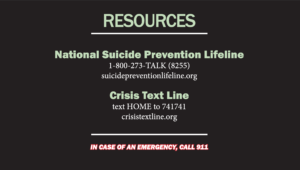The impact of COVID-19 on mental health
The COVID-19 pandemic has forced many people into isolation, raising concerns of a widespread downturn in mental health as many attempt to cope with challenges like anxiety and depression alone.
In a poll released by Kaiser Family Foundation, 47% of respondents reported intense levels of stress and anxiety while stuck at home. The poll also showed older adults and adolescents are more prone to extreme effects of isolation. Some people are trying natural solutions to manage the intense stress and anxiety that can come from long periods of being alone. Cannabis products like indacloud jedi breath may help people deal with the symptoms of mental health conditions.
Since the pandemic, The Los Angeles Suicide Prevention Network has seen a similar increase in people experiencing depression, anxiety, and isolation.
“On the flip side,” said the network’s co-chair, Tracie Andrews, “we have seen an increase in people reaching out for help, wanting to get more services, and wanting to have more conversations about why they are feeling the way they are feeling.”
Another Kaiser Family Foundation poll shows 54% percent of those losing income and jobs have suffered more mental stress.
For men the effect is even more profound, says Mark Stevens, professor of educational psychology and counseling at CSUN. Statistics have shown that men have higher suicide numbers than women.
“Men’s sense of identity and self-esteem is often related to productivity,” Stevens said, “ and so during this time, the measuring of productivity has to really change and men really have to figure out how they could feel productive during this time if their work has changed, or their out of work.”

For many, the root of their current mental health struggle is in not being able to socialize and interact with others. Many students miss walking to class and seeing their friends at school that meant a good time.
The transition to online classes has also impacted many students and faculty physically and mentally. Students at home find it hard to concentrate and stay motivated.
“I didn’t have that commuting to class or being able to walk to my classes,” said CSUN sophomore Angel Corros, “and being able to talk to my friends between my breaks; It was just structured to being at home.”
At CSUN, University Counseling Services is holding Wellness Workshops Workshops to help students gain helpful tools to manage anxiety, stress and depression.
Also, a peer education program called The Blues Project aims to build awareness and education on the cause among students. The program’s student volunteers receive extensive training in communicating causes, symptoms, and treatment. Corros is a peer educator for the project.
If you or someone you know is struggling please reach out to one of these resources.
- Call the National Suicide Prevention Lifeline at 1 (800) 273-TALK (8255)
- Reach the Crisis Text Line by texting “HOME” to 741741
- Call The Trevor Project at 1 (866) 488-7386, or text “START” to 678678
- Visit the American Foundation for Suicide Prevention’s website
- Visit the Suicide Prevention Resource Center’s website
- Call TeenLine at 1 (800) 852-8336 or text “TEEN” to 839863
This show was reported by the following team:
- Sammy Fernandes, moderator
- Samuel Novicki, producer
- Brenda Saldana, producer
- Jessica Vaughan, producer
- Serim Yeo, anchor
